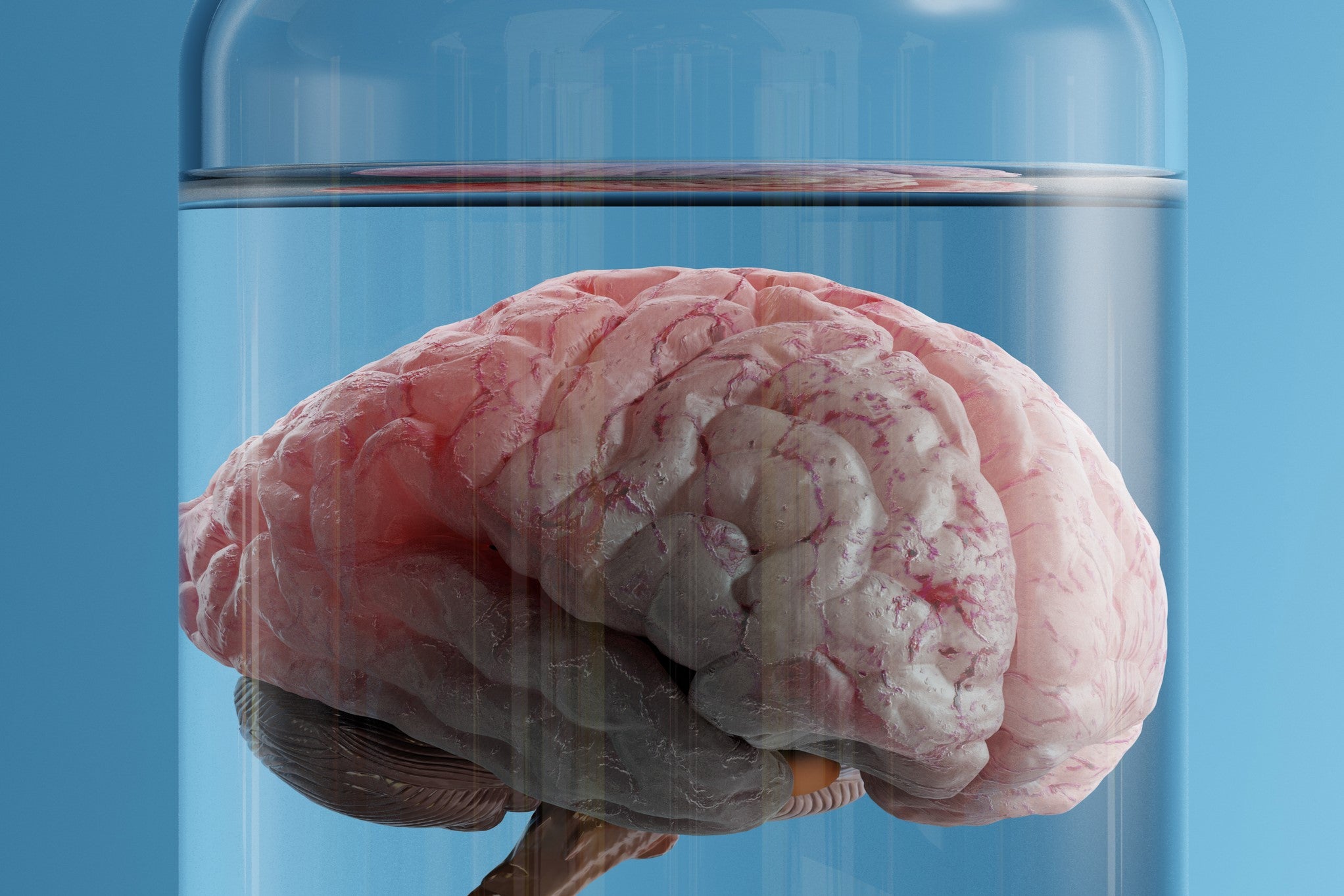Scientists invent device to keep brain alive while severed from the body
Device allows new technology and research that has ‘never been done’, scientists say

Scientists have invented a device that can keep a brain alive and functioning independent from the rest of the body.
Researchers at UT Southwestern Medical Center in the US were able to isolate the blood flow to the brain of a pig anesthatised with ketamine, while a computerised algorithm maintained the necessary blood pressure, volume, temperature and nutrients that the organ requires.
The team of neurologists reported that the brain activity saw minimal changes over a five-hour period, despite receiving no biological input from the rest of the body.
The success of the experiment could lead to new ways to study the human brain without influence from other bodily functions, according to the scientists, while the technology opens up the potential for performing brain transplants in the future.
“This novel method enables research that focuses on the brain independent of the body, allowing us to answer physiological questions in a way that has never been done,” said Juan Pascual, a professor of neurology, pediatrics and physiology at the Eugene McDermott Center for Human Growth and Development at UT Southwestern.
The first-of-its-kind system, referred to as an extracorporeal pulsatile circulatory control (EPCC), has already been used to better understand the effects of hypoglycemia on the brain without having to consider external factors.
Research into low blood sugar typically involves restricting the food intake of lab animals, or dosing them with insulin, however animal bodies have their own natural methods for compensating for these factors by altering the metabolism.
Isolating the brain in this way allowed the researchers to study the impact of the nutrient intake independently of the body’s natural defence mechanisms.
The research was detailed in a study, titled ‘Maintenance of pig brain function under extracorporeal pulsatile circulatory control (EPCC)’, published in the journal Scientific Reports.
“The preservation of cerebral activity as studied by our methods under EPCC was maintained over the duration of each subject study,” the researchers concluded in their study, which was published earlier this month.
“Except for excess brain tissue oxygenation upon oxygen supplementation, and mild intracranial pressure changes when craniotomy was used, this system was associated with near-native levels of cerebral physiological parameters such as intracranial pressure, tissue oxygen saturation and temperature.”
Join our commenting forum
Join thought-provoking conversations, follow other Independent readers and see their replies
Comments
Bookmark popover
Removed from bookmarks